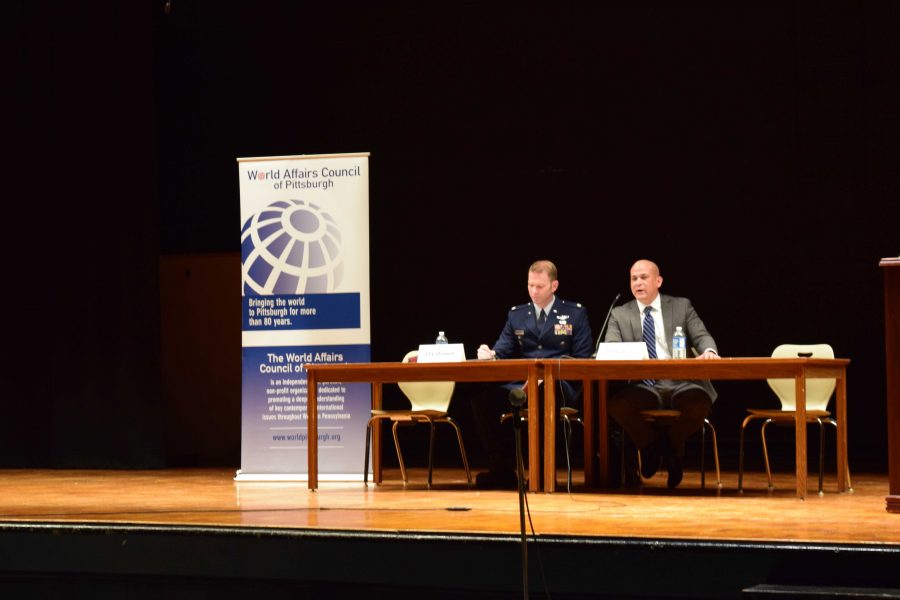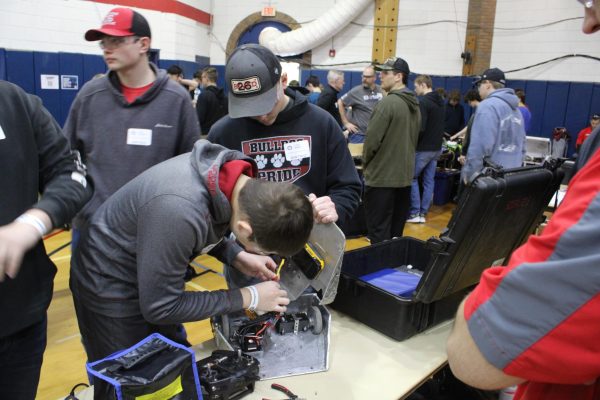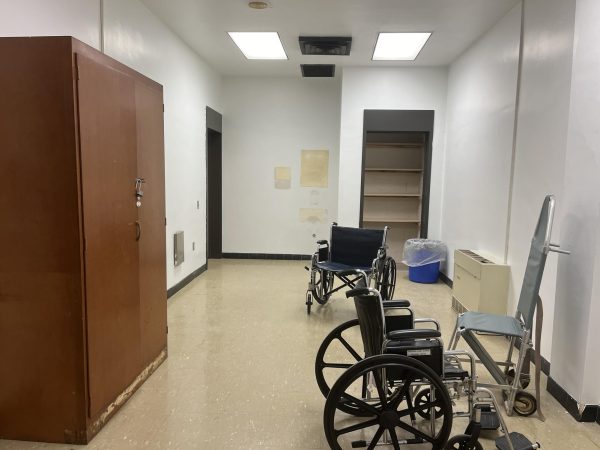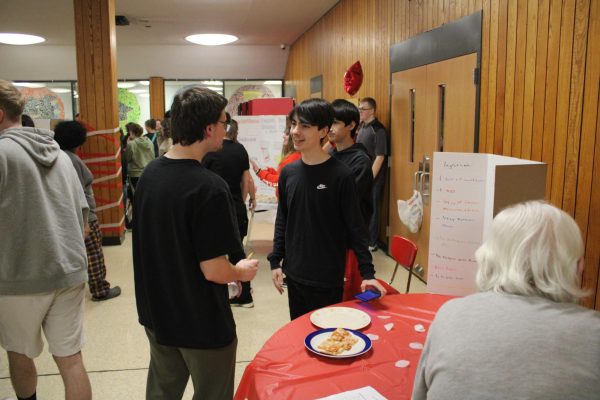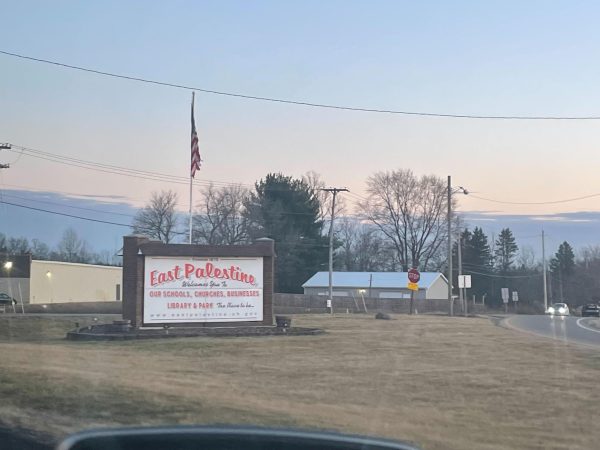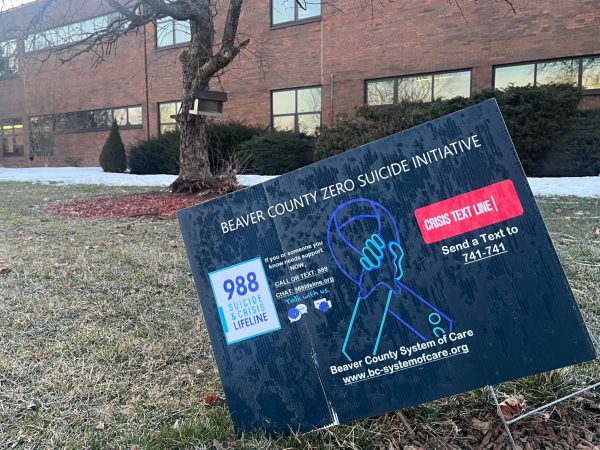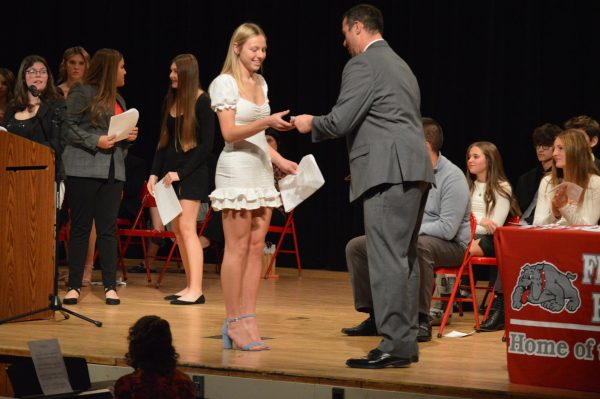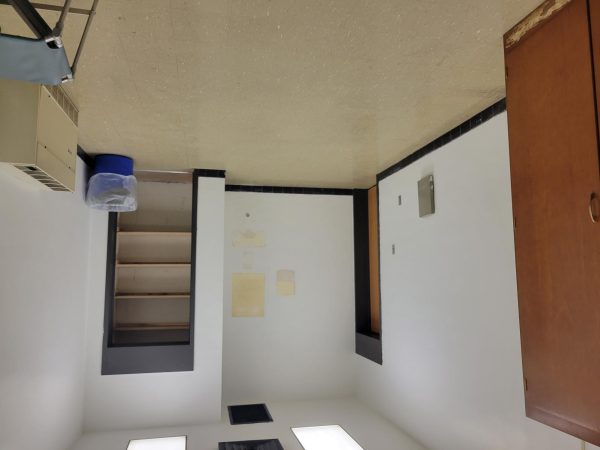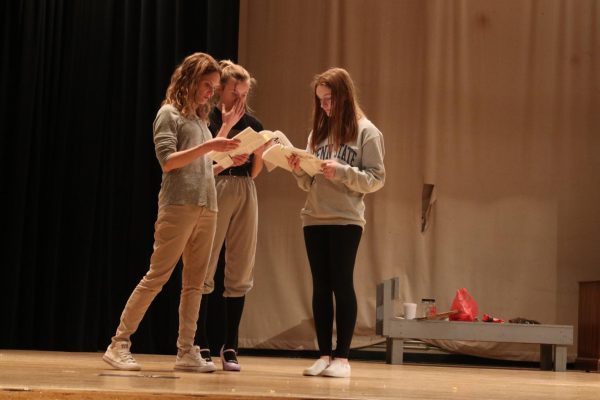Arming the youth with knowledge
Speakers from the Army War College in Carlisle, Pennsylvania engage in discussion with a panel of students at South Side Area High School
On Jan. 24, the World Affairs Council of Pittsburgh hosted an event in correspondence with the U.S. Army War College to engage students in discussions surrounding global challenges for the new administration.
During this event, senior officers from two separate branches of the U.S. military candidly discussed topics ranging from national security to border patrol to terrorism. Students were permitted to ask specific questions to the speakers and, in return, receive thorough answers.
Lieutenant Colonel John Dobbin of the U.S. Air Force and Commander Jesse Muñoz from U.S. Border Patrol spoke at the event. Dobbin and Muñoz explained their own positions, as well as to explain how they were able to earn their occupations. Both officers began their presentations with a brief description of their positions, educational experience and a little bit about themselves.
For instance, Dobbin noted that he chose his career path because he felt as if the needed “to be a part of something bigger than himself.” Muñoz explained how he worked as a civilian nurse for three years before he saw the opportunity to become a border patrol agent and jumped at the chance.
Muñoz also described the purpose of the Army War College and what individuals gain from attending. He explained that every individual in the program graduates with a master’s degree in Strategic Planning but can specify in different areas such as weapons or tactics.
Muñoz began working as a border patrol agent in 2000 and is now an Assistant Chief Patrol Agent and the Commander of the National U.S. Border Patrol Search, Trauma and Rescue Team or BORSTAR.
Dobbin works in the U.S. military and his mission is to plan the most strategic methods of military personnel without using a large amount of money. He has also been involved in international security as the Chief of Special Activities for the U.S. Africa Command.
“Our job is to rescue those in need from the hand of evil,” Dobbin describes in regards to his mission.
Dobbin began to discuss the intense fear of failure that surrounds high schoolers, college students and adults throughout life and this placed a new perspective on the purpose of their jobs. Muñoz classified his mission as a means to save the lives of immigrants, regardless of legality. He placed a call to action on the students attending the event to understand that immigrants, especially those intending to go through the southern U.S. border, go through drastic measures to get into this country.
“People shouldn’t die because they cross the border; you have to look at why they cross the border,” Muñoz said.
On the other hand, Dobbin mentions the difficulty in his position as the constantly-changing technology.
“We’ve got a new problem, and it’s called surprise,” Dobbin claims regarding social media. “[The branches of the military] like things like indications and warnings,” which Dobbin describes is slipping out of the hands of national security officials.
Dobbin also included the lack of control in military spending. He explained that Heinz Field could be filled up with dollar bills six feet deep and this amount to nearly $600 billion, the budget given to the U.S. military in 2016. This accounts for each specialized unit, weaponry and many other aspects of the armed forces.
While questions ping-ponged from one student to another, the officials continued to answer candidly with each new topic. From denouncing stereotypes of the typical border patrol agent’s image to discussing the error in military spending, Dobbin and Muñoz mentioned many different examples and explained their responses.
The World Affairs Council of Pittsburgh is a nonprofit organization created for the purpose of educating the Western Pennsylvania community about international issues. The council, established in 1931, holds hundreds of events annually providing secondary schools the opportunity to learn about modern-day global issues and how they have an impact on local communities.
Each speaker openly provided examples of other nation’s security and how it compares and contrasts to the U.S. They explained that the U.S. leads other nations in border control and other military functions.
Overall, Dobbin and Muñoz provided different perspectives that pushed past the boundaries of the previously-accepted standards of how national security impacts the armed forces.



